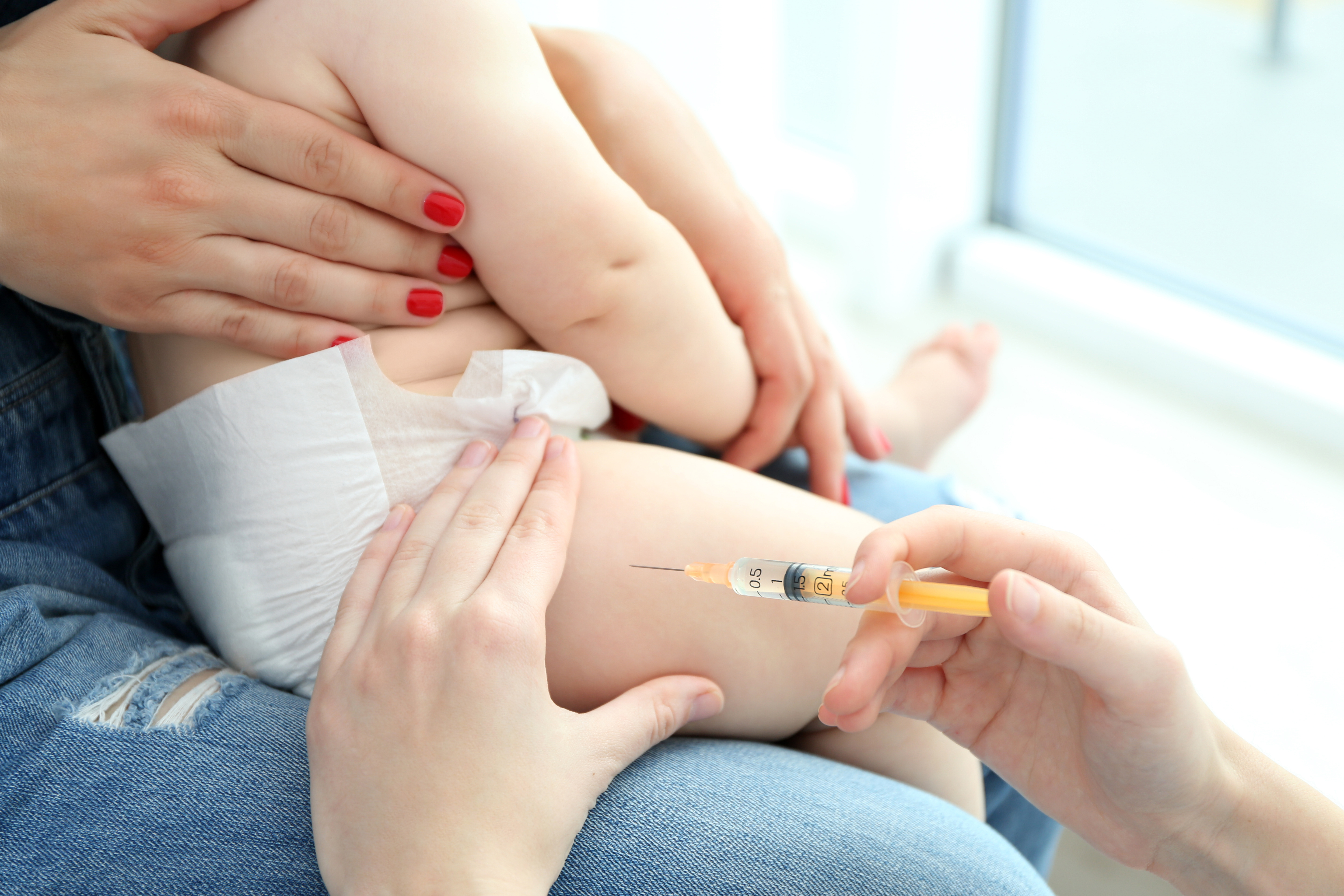Babies and pre schoolers will usually get their jabs at their GP surgery. School age children will often get their jabs via the school nursing teams.
- Dress your baby in clothes that are easy to remove. Babies have injections in their thigh
- Dress toddlers and older children in loose or short sleeves. They'll usually have their injections in their arm
- Stay calm during the vaccination. It's natural to worry but it might make your child anxious
- Let your child know what's going to happen in simple language, for example, "you may feel a sharp scratch that will go away very fast"
- Hold your child on your knee during the injection. If you're worried about seeing injections you could ask a nurse or another member of staff to hold them for you
- Distraction helps. You can get your child to take a deep breath and pretend to blow bubbles. You could bring a favourite toy or book with you
- Try not to apologise to them for their injections as it helps if your child thinks of injections as a good thing
- You may want to bring a reward for them to have afterwards
It may help your child if you have spoken to them about what to expect before their appointment.
Videos for children which may help prepare them for their jabs:
Pre-school children: How Do Injections Help You? by Dr Ranj
School age children: Operation Ouch’s Dr Chris and Dr Xand explain what vaccines are
For more information on vaccine tips for parents.




 One of the best ways to protect your child is to make sure they have all of their vaccinations at the time they are recommended.
One of the best ways to protect your child is to make sure they have all of their vaccinations at the time they are recommended.